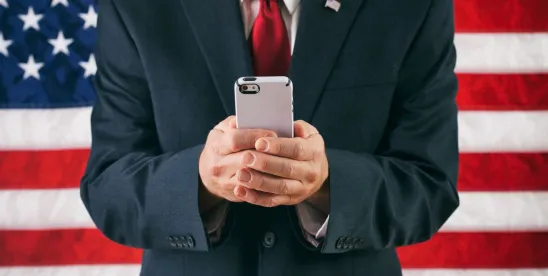Well it is now officially official.
Late on Friday the FCC formalized policies allowing carriers to block calls by default—using “reasonable analytics” to determine which calls are likely to be “unwanted” by consumers using their networks and to block those calls.
The final version of the ruling–found here FCC Robocall Blocking Declaratory Ruling and Third FNPRM– looks to be largely unchanged from the proposed version, with two notable exceptions.
First, and critically, at Paragraph 38 the Declaratory Ruling notes that “a reasonable call-blocking program instituted by default would include a point of contact for legitimate callers to report what they believe to be erroneous blocking as well as a mechanism for such complaints to be resolved.” Assuming the caller is displeased with the outcome of that process, those callers could “seek review of a call-blocking program” via a petition to the FCC. That means the FCC appears to anticipate that the carriers will set up some method to address the concerns of legitimate callers, and the agency could also address call-blocking programs callers believe to be unreasonable. The rule also encourages carriers to notify callers when their calls are being blocked. We’ll keep a close eye on this issue as it is not exactly clear what sort of “mechanism” for caller complaint resolution the carriers will need to employ–but more FCC work in this area may be coming. (See O’Reilly’s statement below for more details.)
Second, our friend Rebekah Johnson of Numeracle—who appeared on Unprecedented just last Thursday for an interview that will drop tomorrow—is cited in new footnote 84 for the proposition that “industry has been active in developing solutions that allow callers to communicate with voice service providers and analytics companies to identify themselves and share their call patterns that might otherwise seem to indicate illegal call activity.” Wow. This is exactly what she discusses with us in our big interview this week—what timing!
With the Declaratory Ruling adopted, Chairman Pai’s separate statement declares: “now is the time for telephone companies to take the baton”—a fairly clear request to the carriers to implement the default call blocking powers they have been afforded.
Commissioner O’Reilly entered a lengthy statement of his own, however, and his concerns about the possibility of legitimate calls being blocked—despite the modifications made to the rule—remained front and center. This thing is worth a read and I quote, at some length, from his statement:
“Like my fellow Commissioners, I share the desire to eliminate the menace of illegal robocalls and believe that this item is very well-intended, though I nonetheless wonder if it may lead to certain problematic consequences. Completely legitimate organizations and businesses regularly engage in so called “robocalling” to provide consumers with critical and time-sensitive information, such as fraud alerts, flight schedule changes, school closures, delivery window delays, prescription notices, appointment reminders, public safety alerts, and—yes—anti-delinquency notices. Efforts to attack illegal and fraudulent calls should not restrict or prevent these beneficial robocalls. To ensure lawful calls are delivered to consumers, I have urged carriers to adopt expeditious processes to correct call blocking and labeling errors. We should applaud providers for offering such services to their customers, generally free of charge, and I have supported the adoption of safe harbors from Communications Act liability. However, formalizing redress mechanisms is a necessary corollary, especially for blocking performed at the network level and not subject to customer consent… I have heard countless accounts of erroneous blocking and labeling both prior to and in the aftermath of the 2017 Order and welcome the adoption of a future item in response to that record in prompt course….”
Commissioner O’Reilly’s statement may foreshadow further work by the Commission to formalize the caller-redress mechanism. He noted the need for redress to take place “within hours”—a point of clarification that is not contained within the ruling.
His statement goes on to discuss some of the potential difficulty predicting what calls will, and will not, be blocked under the new ruling:
“While I fully and wholeheartedly support Commission efforts to purge illegal calls from our networks, I am concerned about encouraging default blocking of socalled “unwanted” calls. Categories like “wanted” or “unwanted” can be somewhat vague and subjective, to put it mildly. Giving carriers such vast discretion to decide which calls are unwanted could lead to wanted calls, containing highly-pertinent consumer information, being blocked. Further, to the extent that carriers may block calls by virtue of their use of “reasonable analytics,” that term seems to invite a similar risk of problematic blocking…. Since the treatment of a given call has been shown to vary from service to service, callers could experience unpredictable call completion outcomes.”
Fascinating stuff with many permutations. More analysis to come TCPAworld.




 />i
/>i

